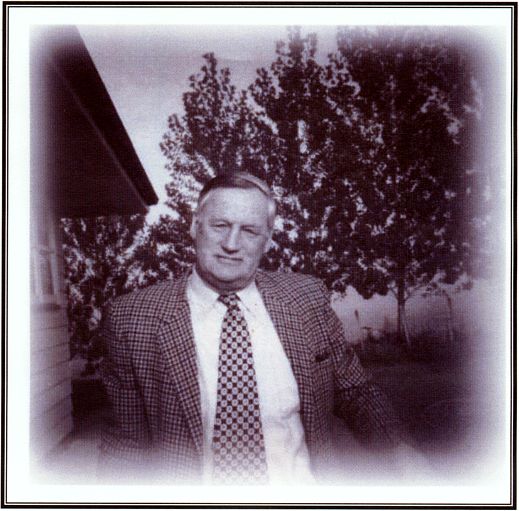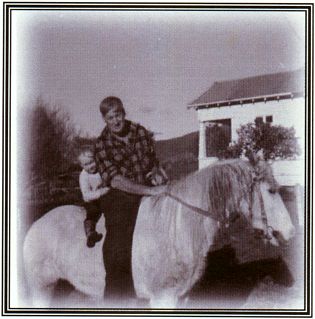
| POLIO NZ WEBSITE |
| HOME |
| NEWS REPORTS |
| POST POLIO SYNDROME |
| GROUP MEETINGS |
| DISABILITY EXPOS |
| OUR STORIES |
| POLIO LINKS |
| RESOURCES |
| CONTACT US |
 My name is Robert Kenneth Bullians. I was born on 2nd Nov 1916. I was told that I contracted polio when I was four and a half years old, and I do remember having extreme pain in my leg. The doctor's first diagnosis was that I was just very bad tempered. I was soon shifted to Taumarunui Hospital. My only memory there was of a very kind lady who brought me a large bag of peanuts. I offered some to the nurse but she immediately confiscated them. So the cure for polio was: "Don't eat peanuts." I was sent to King George Hospital, Rotorua, where patients from this area went. There were about 20 or 30 boys and the same number of girls. My first memory there was being strapped on my back to the bed and not being able to move for about a year. I complained to a doctor about that many years later, but he told me it was done to make sure I didn't have a bent spine. Outings We did go home for a fortnight at Christmas, but otherwise we didn't see our parents. One Christmas I had chicken-pox so I had to stay in the isolation ward. The people of Rotorua were very kind to us. I must mention the Maoris in particular. Certain times of the year they took us out in a boat on Lake Rotorua, and to get blackberries. They had to carry some of us. All round, we were a fairly happy lot of kids. Buckets of bread and milk were brought into the ward for breakfast. The milk was very white and I am sure it was skim-milk, which was in those days used as pig food. Now days it is known as white top and recommended for health reasons. Did we lead the way? One boy who had both arms paralysed used the spoon with his feet. We admired him as he usually finished his breakfast first. Treatments Our treatment consisted of daily vigorous massage by the nurses, followed by bathing in hot pools. We also had electrical stimulation of our paralysed muscles. For a short while I was fitted with a splint of straight iron right up to my waist. I could only either lay down or stand up. I remember the first time I went to the toilet, or tried to! I must have found some way around it as I don't recall having further problems. Otherwise, I had an ankle splint and two walking sticks which I had when I eventually went home from hospital. School Life In those days we assembled and marched into our class-rooms, and had daily drill sessions. I was told to go straight to my room as I couldn't keep up with the other kids. One of the conditions made when I left hospital at 7 years of age was that I could come back to hospital at eleven and they would transfer muscles from my good leg to the other one. When the time came, my parents let me make the decision. I said "NO" and later learned it was the right decision. I must have been a bit above average at school work, probably because I didn't indulge in any sport and spent more time learning. By the time I got to High School I had caught up to the children my own age. In the mid 1920's you either failed or passed, and it was not unusual to skip a class especially if there were too many in that standard. Quite often there were 70 or 80 in one class. I remember a few Polio epidemics, and sometimes the schools would be closed well into March after the Christmas holidays. It was known as Infantile Paralysis then, and how I hated those words. They conjured up in my mind something that backward children got. My mother died when I was fourteen. My father worked at a sawmill about 30 miles away and only came home most weekends. We children, those of us still at home, made our own decisions. The early thirties were the middle of the depression. With my disability I was not eligible for any Government employment. I therefore left school after two years at High School and decided to milk a few cows by hand on our small farm. Free from Sticks There were small inconveniences, like the first time I went to the pictures and was shown a seat in the middle of the row and no way could I sit down. Thereafter I asked for a seat on the outside row.  Farm Life and
Broken Braces At one time I went to a private firm, Sylvester and Steed, for splints and boots. The then Minister of Health, Mabel Howard, was able to get partial assistance to help me with the cost. Shortly after the start of the war, I was examined for military service. The doctor's report was: "unfit, left leg emaciated." I didn't like that description, but I suppose the truth hurts sometimes. I even got my driving license. I had an old 1923 Hupmobile and I managed to work the clutch, accelerator and brake with one foot. The traffic office gave me the licence, I think he was just glad to get out of the car. While in Rotorua on that trip, I met Sister Snodgrass, one of the nurses from the hospital. She threw her arms around me and said "Robbie Bullians, you're still alive". The fact that I never met any one from the Ward I was in might mean that most passed away. Marriage My wife Frances was a help and encouragement to me. She was one of the unsung heroes and heroines who marry people with disabilities. In the 1960's we sub-divided a small farm I had near the hospital, hence Bullian's Avenue and Kenheath Place named after our 2 children Ken and Heather. We had a rather nice house built on an elevated section and Frances was very happy there. Shortly after our Golden Wedding Anniversary Frances developed Alzheimer's. I looked after her until about 3 years ago when I had to go into hospital. Frances was shifted to a Rest Home. She passed away in September last year (2002) at 86 years of age. Thankful Looking back over my life there are many things I have to be thankful for. First, that I got polio so young. Because if I had got it later in life I would have already known another way of living. Secondly, that I was denied an inside office job, and so I was able to build up a healthy body enabling me to fend off the hardships of approaching old age. And how glad I am that there was no sickness benefits or dole in 1932 when I left school. The invention of the hinged knee for my splint was great. But oh the joy and pleasure of that first straight iron splint was terrific. No words can express my feelings when I was able to walk with both hands free. I have had good health right into my eighties. Since then I have had a laryngectomy and need to block the hole in my throat to talk. What was my good leg has got weaker (maybe post polio syndrome) and need two walking sticks to get round again, or a wheelchair around the house. Several years ago I had an operation for carpel tunnel in my right hand, and now I have it in my left one. I have lived on my own since Frances went to the rest home. Robert Bullians |
